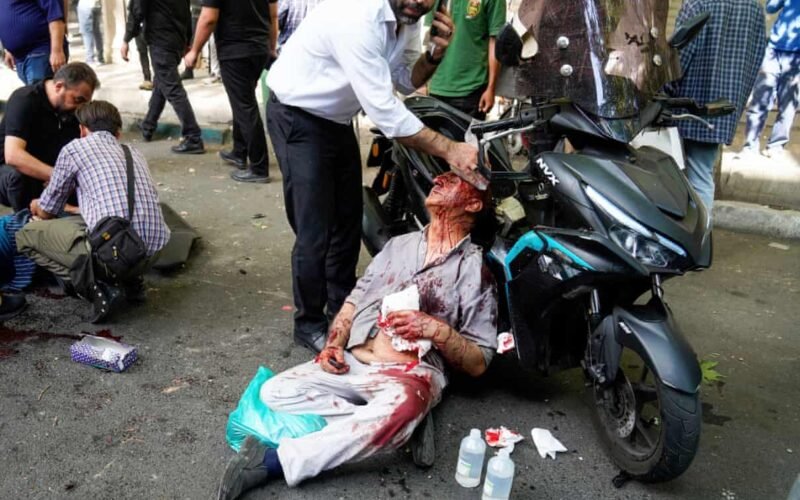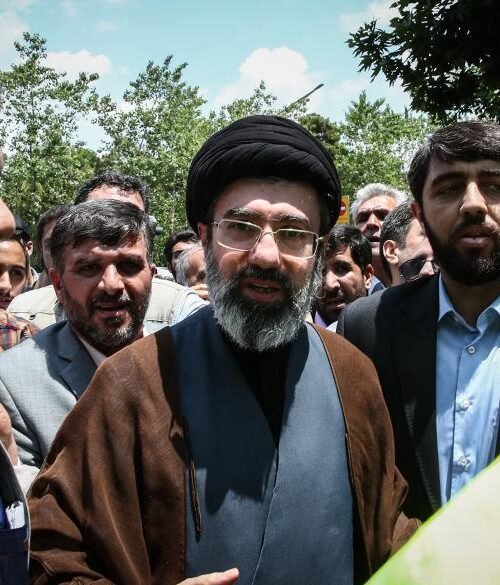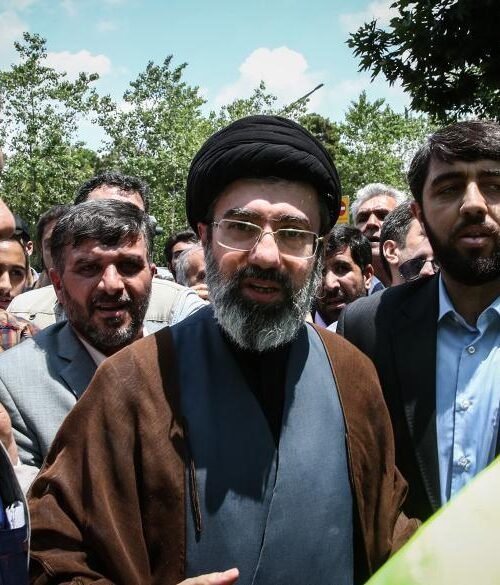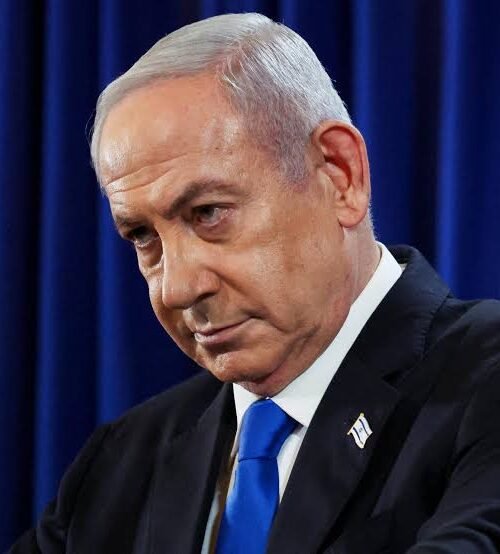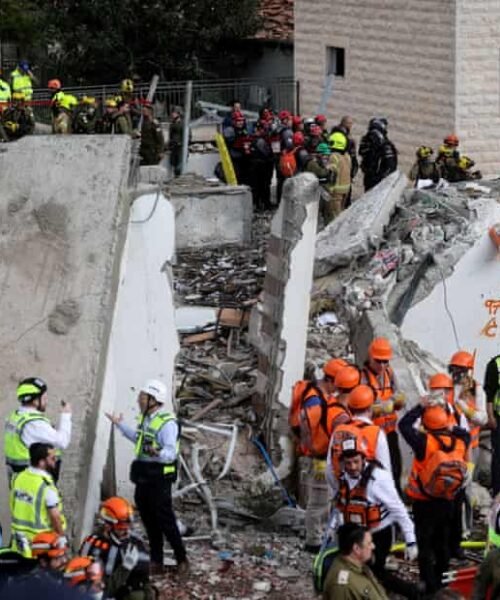‘ What If The Strikes Hit Us On The Highway?’
As Farhad (not real name, for security reasons) and his friends left Tehran, they had plenty of time to survey the destruction.
Smoke billowed from rooftops and flames flickered behind them as they inched their way through miles-long traffic to escape Israel’s bombardment of Iran’s capital city,reports the Guardian UK.
Despite leaving early on Tuesday morning, it took Farhad six hours to reach his ancestral village, a journey that usually would take no more than two-and-a-half hours.
“Young children, elderly and sick grandparents, you found everyone stuck on the roads,” Farhad, a 22-year-old student at a university in Tehran, told the Guardian via text.
Another Tehran resident, described a 10-hour journey fraught with worry as Israeli jets flew overhead.
“All the way while I was stuck in traffic we were fearing what if the strikes hit us on the highway? What if there are secret storage facilities around us? The fear of not knowing created a lot of anxiety,” said Mina, 24, a finance professional in Tehran.
They were some of the thousands of Tehran residents who have fled since Israel launched hundreds of airstrikes on Iran early on Friday morning, which it said was aimed at preventing Iran from obtaining a nuclear weapon.
Iran responded by launching a barrage of ballistic missiles and drones at Israel in a steadily escalating tit-for-tat war, which has entered its fifth day.
Unlike Israel, which was well prepared for Iranian ballistic missiles, Tehran has no dedicated bomb shelters. City authorities opened the metro as an ad hoc shelter on Sunday and instructed other people to head to mosques – though it was unclear what protection, if any, the above-ground shelters could offer.
Farhad, like many other residents, was loth to leave his home. The young international relations major had just scored a part-time job that he hoped would boost his applications to universities in Europe.
But when a huge blast went off as he was shopping in the Sattar Khan traditional market, and his father’s friend was injured in the Israeli strike on Iran’s state broadcaster on Monday, he knew he had no choice but to leave.
“I am shattered for my friend. I am feeling useless and helpless. I don’t know how much more we can take from the news, it’s all escalating so quickly,” Farhad said.
A resident of Tehran who stayed behind estimated that “more than half” of the city’s population had left, an estimate the Guardian could not verify. “Tehran is in a state of semi-shutdown. You can say only banks and municipalities are open. Food supplies are running low, the market is almost shut down and Tehran is almost evacuated,” said Akram*, who was still in the city.
He added that petrol stations were limiting customers to 10 litres a day, creating long fuel queues.
On Monday, Israel issued evacuation orders to residents of a large part of Tehran, warning them that “military infrastructure” would soon be bombed there. The message, issued via the social media platform X, resembled similar alerts issued by the Israeli military in Gaza, Lebanon and Yemen.
X is officially banned in Iran and the Iranian government has been throttling internet access since Israeli attacks began on Friday, preventing many Iranians from seeing the evacuation orders.
Donald Trump later urged everyone to immediately evacuate Tehran in a post on Truth Social, his social media platform.
Human rights experts criticised the evacuation orders, which they said were overly vague and seemed designed to promote displacement.
“The most ‘specific’ evacuation order we have seen in Iran is 300,000 people. That’s a massive, massive order. You cannot just order 300,000 people to leave without giving specific routes to leave,” said Hussein Baoumi, the deputy regional director for the Middle East and north Africa at Amnesty International.
“The evacuation orders seem to be following the same pattern as in Lebanon and Gaza, where they really seem aimed at causing confusion and panic, rather than offering protection to civilians,” Baoumi added.
Not all residents of Tehran could flee. The war with Israel comes during Iran’s worst economic crisis in decades and some lacked the means to travel out of the city.
“There are three kinds of people that are still in Tehran: those who have no place to go; those who have no money to leave; and medium-level government staff whose leave request was rejected by the government,” said Sadia*, a woman in her 40s who was still in the city.
Activists also raised the alarm about Evin prison, which sits on the edge of the area specified by Israel’s evacuation order. It is filled with political prisoners and female protesters detained in the 2022 Woman, Life, Freedom protests, as well as ordinary offenders and has not been evacuated.
“My dad is in prison! Can you tell me how he is supposed to evacuate Tehran!? Can you tell me? What do you mean he should evacuate Tehran!?” Mehraveh Khandan, whose father, the Iranian human rights activist Reza Khandan, is detained in Evin prison, said in an Instagram post.
The continued fighting left displaced residents of Tehran in limbo, as they worried about those left behind and that their own exile would be prolonged.
“From here, I see the images of my beautiful home city being destroyed. I haven’t brought much with me, just enough to survive. My entire heart and soul is in Tehran. I only brought hope with me,” Mina said.
‘ There’s A Smell Of Death In The Air’
It was just past 4pm when Nahid’s windows began to shake. An Israeli bomb hit a building nearby – she could not see where – and soon her house began to fill up with smoke. It was the third day of Israeli bombing of Iran and the situation in Tehran was just getting worse.
“This is a massacre. The blasts haven’t stopped. Children are crying and we fear many civilians have been killed. There’s a smell of death in the air. I can’t stop crying,” Nahid, a 25-year-old finance analyst at an e-commerce company in Tehran, told the Guardian via text.
Residents began to flee Tehran and head towards the countryside on Sunday as Israeli attacks on the Iranian capital escalated, with bombs raining down on residential and government buildings alike. Authorities gave no official death toll, but at least 138 people have been killed and hundreds wounded by strikes on Iran since Friday.
As the conflict continued to escalate, Iranian authorities announced they would open Tehran’s metro stations and schools to use as shelters.
“Unfortunately, we in Tehran and in other cities do not have shelters,” said Mehdi Chamran, the chair of the city council, as he urged civilians to use tunnels and basements as makeshift bomb shelters.
The ferocity of the Israeli assault caught Iran’s citizens and government by surprise, as Israel’s jets flew with virtual freedom over Iranian skies. While Iranian missiles flew towards Israel, its military seemed incapable of stopping Israeli attacks.
“We are not confident mosques, schools or metro stations will be safe. What if we get buried under? My sisters and I are going to urge my parents and neighbours to leave home,” Nahid said.
There were scenes of chaos on Tehran’s streets as residents rushed to buy food amid bombings before shops shut.
“People are running around in the streets and screaming. It’s extremely dangerous to step outside now but we don’t have an option,” said Reza*, a student at the University of Tehran. The 21-year-old described long lines at petrol stations as he and others filled their cars before making the journey out of the city.
While residents queued for fuel, or for cash at ATMs, a sense of panic began to spread as the strikes were joined by car-bombings, reportedly targeting Iranian nuclear scientists. People struggled to contact their loved ones as Iran’s mobile phone network failed, giving only sporadic coverage.
Experts said Israel’s attack had come at a critical point for the Iranian government, which has been rocked by protests in recent years and by a deepening economic crisis.
Prices of food and other essential goods have rocketed over the past year as the Iran’s currency, the rial, rapidly depreciated. Trump quickly signed an executive order after retaking office in January that tightened sanctions against Iran, choking off oil exports from the already beleaguered economy.
Iranians took to social media to mock the government’s lack of preparedness, sharing videos of top military officials saying Israel would never dare to attack Iran. Officials had previously trumpeted Iran’s ability to deter strikes through its fierce military capabilities.
Within Iran, state TV replayed footage of Iranian strikes on Israel and played down the impact of Israeli attacks. The feeling of being under attack has prompted a sense of unity among some Iranians.
“We have been hearing the rumours of regime change, especially by the Israelis and Americans. It seems more like a joke,” said Hadi, a Tehran resident in his 60s.
He added that among his friends, those who were initially against Iran developing nuclear weapons now felt the country needed an atomic arsenal to defend itself from Israel.
“Many Iranians may criticise the government and object to the strategies, but history has proven that Iranians unite when attacked by a foreign country,” Hadi said.













